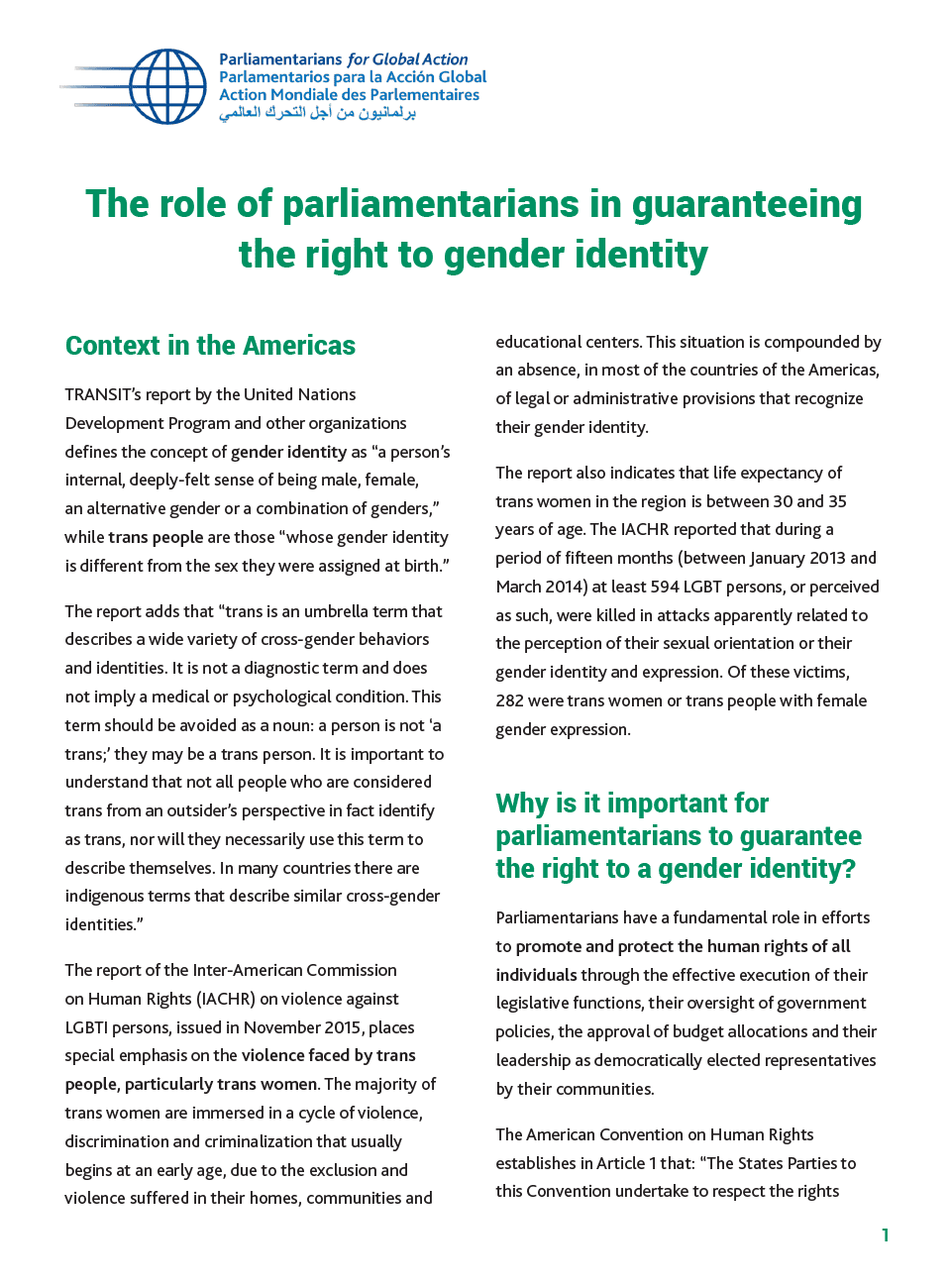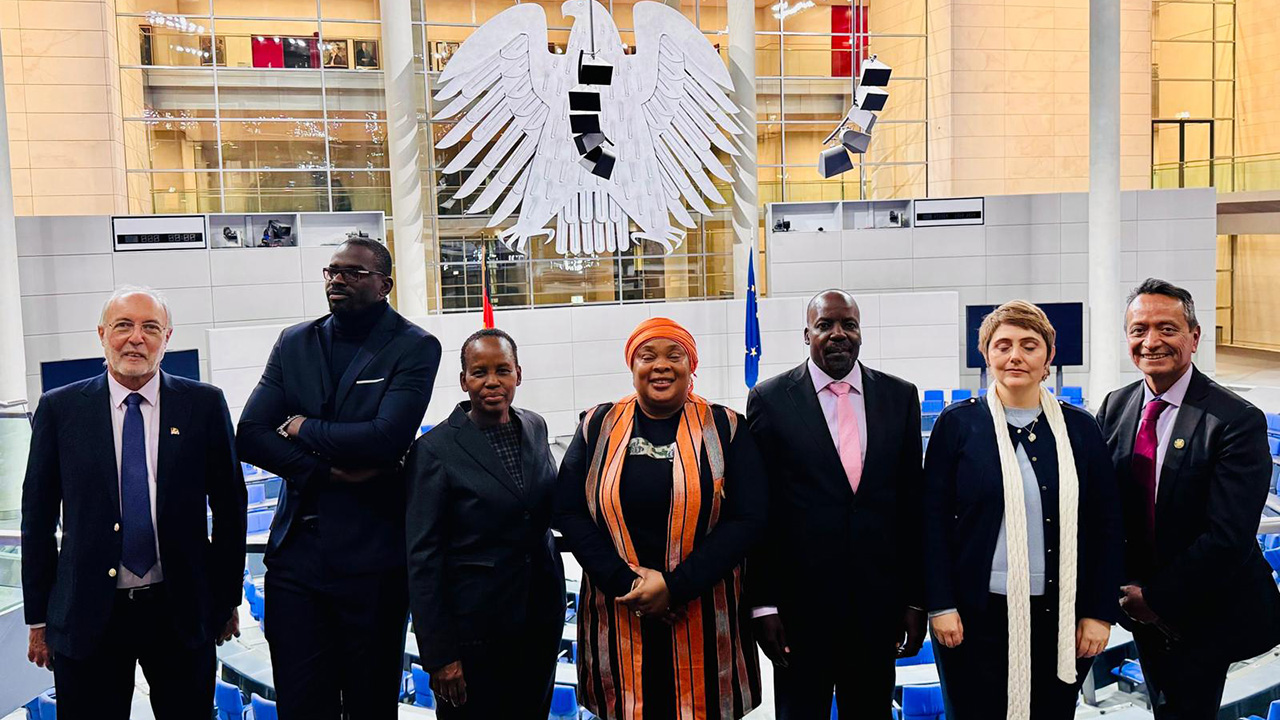After more than five years of parliamentary proceedings, the project of gender identity law was finally approved yesterday by Chile’s Chamber of Deputies, with 95 votes in favor and 46 against. After the approval of the text by the Senate last week, the project will become law after its proclamation by the Executive Power.
The text enshrines the right of every person to the recognition and protection of their right to gender identity, to be identified in public and private documents with the gender of their choice and to freely develop their personality according to their gender identity. People over the age of 18 who are not married will be able to change their documents by an administrative process. People over 14 and under 18 years old and married people will be able to do so through family court. People under the age of 14 are not included in the law.
Parliamentarians for Global Action (PGA) has contributed to the efforts of local civil society organizations to advocate for this project of law by facilitating contacts with PGA member-legislators in the Chilean parliament and providing legislators with technical assistance.
“Congratulations to trans people in Chile and their allies for this significant victory, which contributes to their equal dignity, visibility and inclusion in society. People should be free to determine their own gender and the State should recognize this right,” said PGA’s President Margareta Cederfelt, Member of Parliament from Sweden.
“I am proud of my country for this legislative success,” said PGA Board Member Tucapel Jiménez, Member of Parliament from Chile and Co-convenor of PGA’s Gender, Equality and Population Program, adding: “The right to self-determine your own gender identity is a fundamental matter of individual freedom and Chile is putting itself at the vanguard of States that recognize this.”
On January 9, 2018, the Inter-American Court of Human Rights issued an important Advisory Opinion in which it affirmed that “the recognition of gender identity by the State is of vital importance to guarantee the full enjoyment of the human rights of trans people.” The Court recalled that, in accordance with international law, the States Parties to the American Convention on Human Rights are obliged to apply the standards established in the Advisory Opinion. Chile is doing so with the gender identity law and it is to be expected that other countries in the region will follow suit.
Under its Gender, Equality and Population Program, PGA’s SOGI Campaign seeks to mobilize parliamentarians to take action, including legislative reforms, which protect and promote the rights of lesbian, gay, bisexual, trans and intersex (LGBTI) people, with a particular focus in Latin America and the Caribbean.
Publication

Advocacy Brief: The role of parliamentarians in guaranteeing the right to gender identity
In addition to advancing gender identity laws that establish procedures for the change of name and sex/gender, parliamentarians can promote the right to gender identity in their legislative function.
Description
Parliamentarians have a fundamental role in efforts to promote and protect the human rights of all individuals through the effective execution of their legislative functions, their oversight of government policies, the approval of budget allocations and their leadership as democratically elected representatives by their communities.
Several PGA members have supported in their national parliaments the enactment of gender identity laws that establish simple and transparent procedures for trans people to change their name and sex/gender in official documents and records to reflect their self-perceived gender identity.
PDF(s)
Additional Details
- Publication Type: Advocacy Brief
- Publication Date: 2018
- Author(s): Parliamentarians for Global Action




